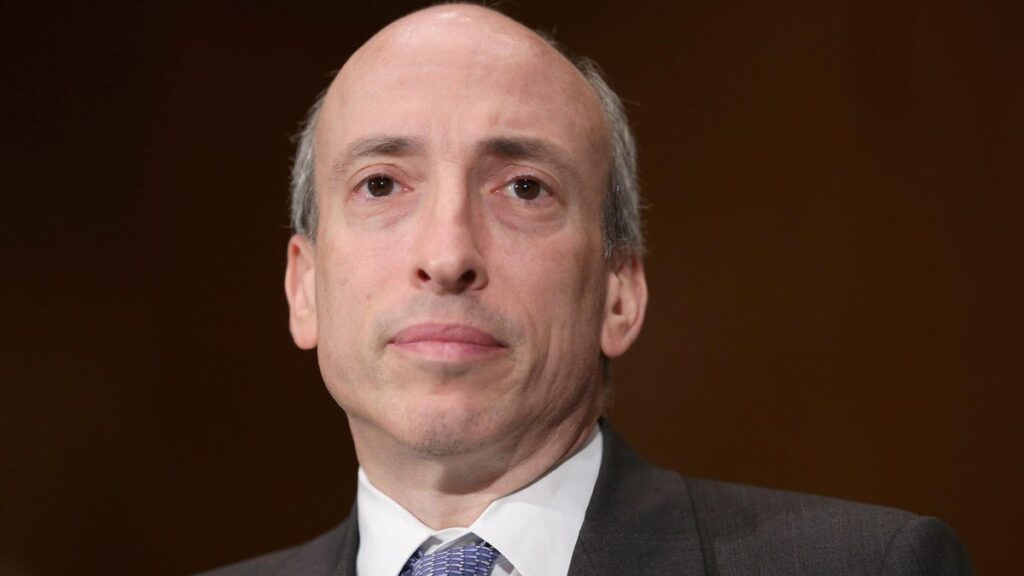Hive Digital Technologies, a Bitcoin mining company, has revealed that its strategic move to acquire a fleet of Bitmain mining rigs in 2022 has already proven to be a lucrative decision, primarily attributed to the substantial increase in the price of Bitcoin (BTC).
In a statement released on December 8th, Hive Digital explained that their decision to acquire mining rigs began after the collapse of FTX, a move they believe will position them favorably for the upcoming Bitcoin halving scheduled for April 2024.
On December 22, 2022, Hive made a significant purchase of 3,750 Bitmain S19J rigs.
President and Chief Operating Officer, Aydin Kilic, noted that the team also updated its software stack to seamlessly integrate these new rigs.
While the S19J rigs were the top-of-the-line ASIC rigs in 2022, they have since been succeeded by the more energy-efficient S19Ks.
Hive Digital emphasized the significance of their acquisitions since the collapse of FTX in November 2022, which marked the beginning of a year-long bear market for Bitcoin.
READ MORE: Lost Studio Recording of Young Michael Jackson Unveiled: A Digital Vinyl Exclusive via Blockchain
The company has procured a total of 29,000 ASICs at an attractive average price of approximately $13.70 per terahash (TH). These rigs boast an average output of 26 joules per terahash (J/TH).
As a result of these acquisitions, Hive Digital’s global fleet efficiency has surged to 28.9 J/TH, with an expected operating hash rate of 4.8 exahashes per second by the end of December 2023.
In November 2023 alone, the company produced 276.3 Bitcoin from both ASICs and GPUs, averaging 66.7 Bitcoin per exahash.
Bitcoin’s remarkable growth of over 160% since January 1st has greatly benefited miners, especially those who endured a challenging period in the crypto market from late 2021 through all of 2022.
Currently, Bitcoin is trading at $43,400, reflecting a 9.8% increase over the past seven days, according to data from Cointelegraph.
This upward trend has further solidified the profitability of Hive Digital’s strategic mining rig acquisitions, reaffirming their positive outlook for the future in the lead-up to the Bitcoin halving in 2024.
El Salvador has introduced a new citizenship-by-investment program, known as the “Adopting El Salvador Freedom Visa Program,” which offers residency and a path to citizenship for 1,000 individuals willing to invest $1 million in either Bitcoin or Tether within the country.
While this program represents a unique opportunity, it comes with a steep price tag compared to neighboring Caribbean nations, where citizenship programs can start as low as $100,000.
The initiative, announced on December 7th, is a collaboration between the Salvadoran government and the stablecoin issuer, Tether.
To participate, potential investors are required to make an initial nonrefundable deposit of $999, which is credited toward the total $1 million investment.
If all 1,000 spots are filled, El Salvador stands to generate $1 billion in revenue, a substantial income source reminiscent of countries like Vanuatu, which annually earns millions through its own citizenship-by-investment program.
Critics, including Alistair Milne, the founder of crypto hedge fund Altana Digital Currency, have deemed El Salvador’s offering as “uncompetitive in the global market.”
Join Betfury – The Leading Crypto Casino
Comparatively, other options exist, such as Malta, which offers citizenship by investment for €750,000 ($810,000), providing access to the EU’s visa-free Schengen Area covering 23 countries.
Additionally, neighboring Caribbean nations like Antigua and Barbuda, Dominica, and St. Lucia grant citizenships in exchange for a $100,000 contribution to sovereign development funds.
Grenada and St. Kitts and Nevis offer similar programs with contributions starting at $150,000 and $250,000, respectively.
Despite the higher price point, El Salvador’s unique appeal lies in its pro-Bitcoin policies initiated by President Nayib Bukele.
These policies include recognizing Bitcoin as legal tender and eliminating income and capital gains taxes for tech companies investing in the country for the next 15 years.
These incentives may attract crypto investors to consider relocating to El Salvador.
However, it’s essential to note that President Bukele’s tenure has also faced controversy, with concerns raised about human rights violations and arbitrary detentions during his efforts to reduce the country’s high murder rate.
Bukele stepped down from the presidency on December 1st to focus on his reelection campaign ahead of the general election scheduled for February 2024.
El Salvador’s new citizenship-by-investment program, while notable, comes with mixed reviews due to its relatively high cost compared to other options and ongoing concerns about governance.
YieldMax, a specialized exchange-traded fund (ETF) firm, has recently submitted an application to the United States Securities and Exchange Commission (SEC) to introduce a groundbreaking yield-bearing ETF product.
This innovative offering will be based on shares of MicroStrategy, the Bitcoin-focused holding company led by Michael Saylor.
If granted approval by the SEC, the ETF will be known as the “Option Income Strategy ETF,” with plans to launch in 2024, trading under the ticker symbol “MSTY,” which is just one letter different from MicroStrategy’s existing ticker “MSTR.”
YieldMax’s forthcoming ETF employs a unique “synthetic covered call” strategy. This strategy combines the purchase of call options and the sale of put options to generate revenue, with the earnings distributed to MSTY ETF holders on a monthly basis.
An interesting aspect of this ETF is that it will not possess any actual MicroStrategy shares; instead, it will exclusively derive income from trading MSTR derivatives.
To minimize potential losses, the fund limits its exposure to a 15% gain on call options each month.
READ MORE: Lost Studio Recording of Young Michael Jackson Unveiled: A Digital Vinyl Exclusive via Blockchain
Importantly, the monthly yields from the ETF will not be directly linked to the performance of MicroStrategy shares, ensuring that investors can still receive yields even if MicroStrategy’s stock experiences significant declines.
Questions have arisen on social media platforms regarding the rationale behind investing in this ETF rather than directly purchasing MicroStrategy stock or its options.
Yield-bearing ETFs like this one tend to appeal to conservative investors seeking slightly higher-than-average returns from the volatile stock market.
The fund’s imposed gain limits make it a cautious yet potentially more profitable avenue for generating passive income from significant fluctuations in stock prices.
YieldMax already offers a range of 18 similar ETF products tied to major tech companies such as Tesla,
Apple, and Nvidia. In the case of MicroStrategy, its shareholders have enjoyed substantial gains in 2023, with the company’s shares appreciating by over 290% since the beginning of the year.
Furthermore, MicroStrategy made headlines when its co-founder, Michael Saylor, announced the acquisition of an additional 16,130 BTC for approximately $593.3 million on November 30th, at an average cost of $36,785 per Bitcoin.
As of November 29th, MicroStrategy held a substantial 174,530 BTC, valued at roughly $7.6 billion at the time of this report.
This underscores MicroStrategy’s commitment to its Bitcoin holdings and its prominent role in the cryptocurrency market.
Binance founder Changpeng “CZ” Zhao has been mandated to remain in the United States until his sentencing in February, as concerns over the risk of flight to the United Arab Emirates prompted a federal judge’s decision.
On December 7, Seattle district court Judge Richard Jones issued an order for Zhao to stay in the U.S. until his sentencing, scheduled for February 23, 2024.
This decision stems from Zhao’s guilty plea on November 21, in which he admitted to money laundering, carrying a potential prison term of up to 18 months.
Importantly, he agreed not to appeal any sentence up to this maximum duration.
Judge Jones justified this ruling by emphasizing Zhao’s substantial wealth and property overseas and his lack of significant ties to the United States.
The judge concurred with the arguments put forth by federal prosecutors, who contended that they would be unable to guarantee Zhao’s return to the U.S. in the event he chose not to come back voluntarily.
Furthermore, Judge Jones pointed out that Zhao’s family resides in the UAE, where he seems to enjoy preferential status.
READ MORE: ARK Invest Reaps Millions from Coinbase Stock Sale Amid Record Highs
Under these circumstances, the court found insufficient clear and convincing evidence that Zhao would not attempt to flee if allowed to return to the UAE.
Consequently, the court granted the government’s motion, requiring Zhao to remain within the continental United States between his plea and sentencing.
In a related development, on December 6, Judge Jones accepted Zhao’s guilty plea, which had been submitted nearly two weeks earlier, but did not immediately decide on a federal prosecutor’s request to prevent him from returning to his residence in Dubai.
Zhao is currently on a $175 million bond, primarily consisting of assets beyond the government’s reach, as per Judge Jones.
The bond conditions permit Zhao to travel freely within the U.S. and allow visits from his family, which the judge characterized as minor restrictions on his freedom.
The legal troubles for Binance and Zhao began in November when they reached a settlement with U.S. regulators, agreeing to pay $4.3 billion.
The settlement involved admitting to running an unlicensed money-transmitting business and violating the Bank Secrecy Act, and it also led to Zhao stepping down from his role as CEO of Binance.
Asset manager VanEck has made several predictions for the cryptocurrency market in 2024, foreseeing a new all-time high for Bitcoin later in the year.
These predictions come in the context of a looming U.S. recession and regulatory changes following the 2024 U.S. presidential election.
VanEck, alongside other firms like BlackRock and Fidelity, is seeking approval for spot Bitcoin and Ethereum exchange-traded funds (ETFs).
The firm is confident that the first spot Bitcoin ETFs will receive approval in the first quarter of 2024.
Simultaneously, VanEck paints a gloomy picture for the U.S. economy, anticipating that a recession will finally occur, coinciding with the launch of these ETFs.
They predict that over $2.4 billion could flow into these ETFs during Q1 2024, bolstering Bitcoin’s price.
VanEck also downplays concerns about the Bitcoin halving, expecting minimal market disruption but a subsequent price increase.
The real catalyst for a new all-time high for Bitcoin, according to VanEck, may be political events and regulatory changes triggered by the U.S. presidential election scheduled for November 5, 2024.
VanEck does not anticipate Ether overtaking Bitcoin in 2024, though it expects Ether to outperform major tech stocks.
Join Betfury – The Leading Crypto Casino
They believe that Bitcoin will lead the market rally initially, with smaller tokens benefiting after the halving.
VanEck acknowledges that Ethereum’s market share may face challenges from other smart contract platforms like Solana, which has a more certain scalability roadmap.
Regarding Ethereum, VanEck predicts that Ethereum layer-2 networks will dominate the Ethereum Virtual Machine-compatible total value locked and trading volume after the implementation of the EIP-4844 scaling update.
In a separate report, venture capital firm Andreessen Horowitz (a16z) suggests that crypto could play a crucial role in decentralizing artificial intelligence (AI).
It argues that decentralized networks can counterbalance the centralized AI models currently controlled by tech giants, making it possible for anyone to contribute computing power and data to train large language models.
VanEck also anticipates a shift in the centralized exchange landscape, with Binance potentially losing its top position in trading volume to competitors like Coinbase, OKX, Bybit, and Bitget.
Regulatory pressures have weighed on Binance, culminating in its former CEO stepping down amid a substantial settlement with the U.S. Justice Department.
Additionally, VanEck expects the market capitalization of stablecoins to reach $200 billion, foresees a resurgence of Circle’s USD Coin, and predicts that decentralized exchanges will achieve record spot trading volumes.
They also anticipate Know Your Customer (KYC)-compliant decentralized finance platforms surpassing non-KYC ones in terms of user base and fees, driven by apps like Ethereum Attestation Service and Uniswap Hooks.
Do Kwon, co-founder of Terraform Labs, is making a final appeal against a Montenegrin court’s decision that could potentially lead to his extradition.
Local state media reported on December 6 that Kwon’s legal team had officially submitted an appeal against the November 24 ruling by the High Court of Podgorica.
This ruling had approved the possibility of Kwon’s extradition to either the United States or South Korea, pending a final decision by the Montenegrin Ministry of Justice.
The Montenegrin Ministry of Justice is now tasked with reviewing the appeal and reevaluating the initial extradition order.
A final decision on the matter is expected to be reached by December 15.
In a statement made on November 24 by the High Court of Podgorica, Kwon expressed his preference for extradition to South Korea over the United States.
READ MORE: U.S. Senators Seek FTC’s Response on AI Scams Targeting Older Americans
Kwon’s legal team had initially contested the extradition requests from the U.S. on September 28, arguing that any attempt to deport him before October 13 would be deemed “impossible” due to his ongoing detention in Montenegro.
This legal battle traces back to February 17 when the U.S. Securities and Exchange Commission (SEC) filed a lawsuit against both Terraform Labs and Do Kwon, accusing them of orchestrating a multibillion-dollar crypto asset securities fraud.
The situation escalated when Kwon and the former chief financial officer of Terraform Labs, Han Chong-joon, were arrested on March 23 at Podgorica airport.
They were apprehended for attempting to depart for Dubai with falsified travel documentation.
Subsequently, Kwon found himself in extradition custody in Montenegro from June 15, and the court had ordered his imprisonment for six months while deliberating on whether he should be extradited to the United States or South Korea.
As Do Kwon’s fate hangs in the balance, the ongoing legal proceedings continue to draw significant attention from the cryptocurrency and legal communities, with the Montenegrin Ministry of Justice poised to make a pivotal decision regarding his extradition by mid-December.
The House Committee on Energy and Commerce in the United States has made a significant stride towards advancing blockchain technology with the unanimous passage of the Deploying American Blockchains Act of 2023 (H.R. 6572).
This crucial legislation, passed with a resounding 46-0 vote, seeks to harness the potential of blockchain technology by entrusting the U.S. Commerce Secretary, Gina Raimondo, with the task of promoting its deployment across the nation.
The primary objective of the 13-page bill is to enhance the competitiveness of the United States in the field of blockchain technology and distributed ledger technology.
It calls upon Secretary Raimondo to undertake necessary actions to foster the deployment, use, application, and competitiveness of blockchain technology.
This move has garnered support from Cody Carbone, the Policy Head for the Chamber of Digital Commerce, who expressed optimism that this legislation would safeguard America’s leadership in blockchain development.
Before receiving unanimous approval, Blockchain Association CEO Kristin Smith underscored the bill’s significance in bolstering the nation’s competitiveness in this evolving landscape.
The bill outlines various obligations for the Commerce Secretary, encompassing the development of best practices, policies, and recommendations for both the public and private sectors when engaging with blockchain technology.
READ MORE: Riot Blockchain’s Massive Miner Purchase Sets Stage for Bitcoin Halving 2024
Furthermore, the bill proposes the establishment of a “Blockchain Deployment Program” dedicated to supporting the widespread adoption of blockchain technology.
It envisions the creation of government advisory committees that comprise federal agency representatives, blockchain industry stakeholders, and experts, all working collectively to foster blockchain adoption.
In addition to promoting blockchain leadership, the legislation also focuses on improving coordination among federal agencies interested in utilizing blockchain technology.
Comprehensive studies will be conducted to assess the current utilization of blockchain within federal agencies and their readiness to embrace this innovative technology.
Although the pro-blockchain bill represents a significant step forward, it is just one of many legislative proposals related to cryptocurrency and blockchain technology.
The absence of a House Speaker in 2023 has impacted the progress of such bills.
While this bill is substantial, it may not have the far-reaching implications of other bills, such as the Financial Innovation and Technology for the 21st Century Act, which aims to address the classification of cryptocurrencies as commodities or securities and clarify regulatory jurisdictions.
Now, the Deploying American Blockchains Act will proceed to the House for a vote.
If approved, it must also pass in the Senate before undergoing final scrutiny and approval from Congress and the President, potentially paving the way for a new era of blockchain technology in the United States.
In the recent Republican Party presidential debate on November 6, United States presidential hopeful Vivek Ramaswamy took a strong stance against Securities and Exchange Commission (SEC) Chair Gary Gensler and other regulatory agencies, commonly referred to as the “three-letter agencies,” for their perceived failure to keep pace with the rapidly evolving world of cryptocurrency.
Ramaswamy didn’t mince words when he criticized Gensler for his inability to acknowledge before Congress that Ethereum’s native currency, Ether, should be categorized as a commodity.
He deemed this reluctance by regulators as “nothing short of embarrassing.”
This debate question came in the wake of Binance CEO Changpeng “CZ” Zhao’s recent guilty plea, which raised concerns about the ability of regulators to address fraudulent activities in the crypto space.
In response to the question about preventing fraud, Ramaswamy emphasized the urgent need for regulatory reform in the crypto industry.
He pointed out that fraudsters, criminals, and terrorists have exploited regulatory gaps for an extended period and stressed that current regulations must adapt to the evolving landscape.
READ MORE: Riot Blockchain’s Massive Miner Purchase Sets Stage for Bitcoin Halving 2024
Following Ramaswamy’s remarks, fellow pro-crypto candidate Ron DeSantis chimed in, expressing his strong opposition to the implementation of a central bank digital currency (CBDC).
DeSantis argued that a CBDC would lead to excessive government control, surveillance, and the elimination of cash and decentralized cryptocurrencies. He vowed to discard the idea of CBDCs on his first day as president.
Ramaswamy is among the few presidential candidates who have made cryptocurrency a central theme of their campaigns. He stands out as the sole Republican candidate who has unveiled a comprehensive crypto policy framework.
Meanwhile, former Democratic Party candidate Robert F. Kennedy Jr. has also made cryptocurrency a pivotal aspect of his campaign, even suggesting that he would support backing the U.S. dollar with Bitcoin if elected.
Beyond the presidential race, cryptocurrency has emerged as a contentious issue in the United States.
Democratic Senator Elizabeth Warren, as part of her senate reelection campaign, has declared a “war on crypto,” further underscoring the ongoing debate surrounding cryptocurrency regulation and its implications for the nation’s financial landscape.
A federal judge has officially accepted the guilty plea of Binance founder Changpeng “CZ” Zhao for money laundering, though the issue of whether he can depart from the United States prior to his sentencing in February remains unresolved.
On December 6, in a filing to the Seattle District Court, Judge Richard Jones confirmed his acceptance of Zhao’s guilty plea to one count of Bank Secrecy Act violations.
This plea had been submitted by the Binance founder on November 21, concurrent with his exchange’s massive $4.3 billion settlement with U.S. regulatory authorities.
As part of this settlement, Zhao stepped down from his role as CEO of Binance and agreed to pay a substantial $150 million fine to regulators.
In the court document, Judge Jones acknowledged, “This Court, having considered the Report and Recommendation of the United States Magistrate Judge, to which there has been no timely objection […] accepts the plea of guilty of the defendant.
The defendant is adjudged guilty of such offense.”
Zhao is scheduled to be sentenced on February 23, 2024, and faces a potential prison term of up to 18 months.
READ MORE: Bitcoin Futures Open Interest Soars to $5.2 Billion, Nearing All-Time High
Presently, he is out on a $175 million bond, which would have allowed him to return to his residence in the United Arab Emirates.
However, federal prosecutors have raised objections against allowing Zhao to leave the U.S., expressing concerns that they would be unable to ensure his return.
The UAE lacks an extradition treaty with the United States, and Zhao, with his substantial wealth, could potentially remain in the UAE indefinitely.
Prosecutors argued, “He has three young children and a partner in the UAE; once in the UAE and faced with the prospect of traveling back to the United States to face up to 18 months in prison, he may elect to instead simply stay in the UAE with his family.”
Zhao has vehemently opposed the travel restrictions, asserting that he presents no risk of fleeing justice.
He pointed out that he had already demonstrated his willingness to take responsibility for his actions by voluntarily traveling from the UAE to the United States.
On November 27, Judge Jones issued an order preventing Zhao from traveling to the UAE until a court ruling on the U.S. government’s motion for review is made.
The final decision on whether Zhao can leave the United States before his sentencing remains uncertain.
Bitcoin has defied predictions and gained almost 170% in value since the European Central Bank (ECB) sounded the alarm about its impending “irrelevance.”
On November 30, 2022, when the ECB published a blog post declaring Bitcoin’s demise, the cryptocurrency was trading at just $16,400.
The post argued that even these levels were just a pitstop on the way to further price declines.
According to the ECB’s post, Bitcoin’s value had peaked at $69,000 in November 2021 before plummeting to $17,000 by mid-June 2022.
The post suggested that Bitcoin’s apparent stabilization was merely an artificially induced last gasp before its inevitable descent into irrelevance.
Contrary to the ECB’s predictions, Bitcoin continued to thrive. After briefly revisiting the $16,400 mark in mid-December, it made a swift comeback, surging by 70% in the first quarter of 2023 alone.
A year after the ECB’s premature obituary, Bitcoin was trading at its highest since April 2022, reaching $43,800, marking a 166% increase from the time the ECB issued its warning.
READ MORE: CGMD Miner: Leading Cloud Mining Player in Cryptocurrency
Crypto enthusiasts and experts expressed amusement at the ECB’s erroneous assessment.
Philip Swift, creator of the statistics platform Look Into Bitcoin, found satisfaction in the situation.
Alex Thorn, head of firmwide research at crypto education resource Galaxy, questioned the ECB’s credibility and wondered about other areas where the bank might be wrong.
The ECB has a reputation as a Bitcoin skeptic, with its views on the cryptocurrency market often causing embarrassment. ECB Chief Christine Lagarde, in a recent statement, revealed her low opinion of cryptocurrencies and noted that her own son had disregarded her advice on crypto investments and suffered losses as a result.
Despite its skepticism toward Bitcoin, the ECB is actively exploring the possibility of launching a central bank digital currency (CBDC).
However, this initiative has faced scrutiny, especially after Lagarde admitted that a CBDC could offer enhanced transaction control, sparking concerns about privacy and surveillance within the financial system.
Bitcoin’s remarkable resilience serves as a reminder of the unpredictable nature of the cryptocurrency market and the challenges faced by traditional financial institutions in understanding and adapting to it.













